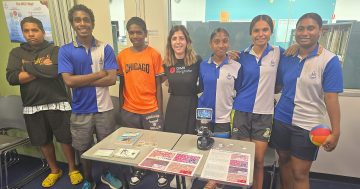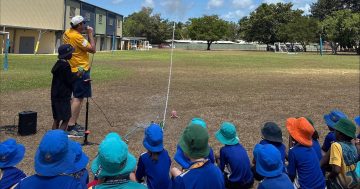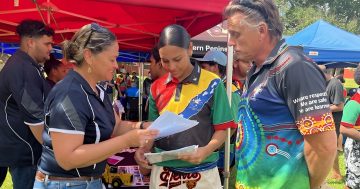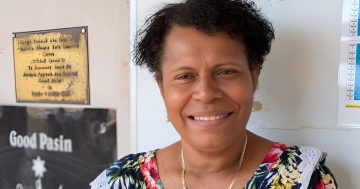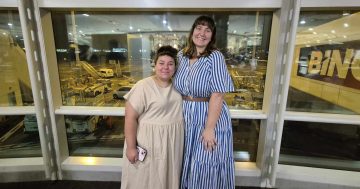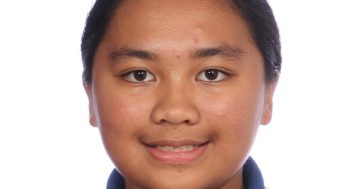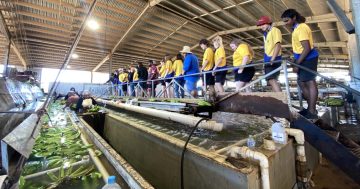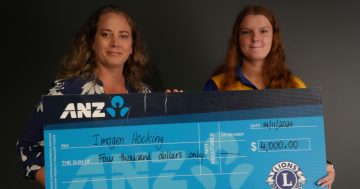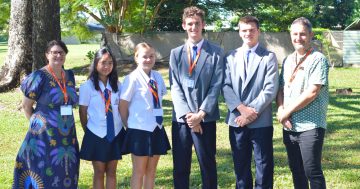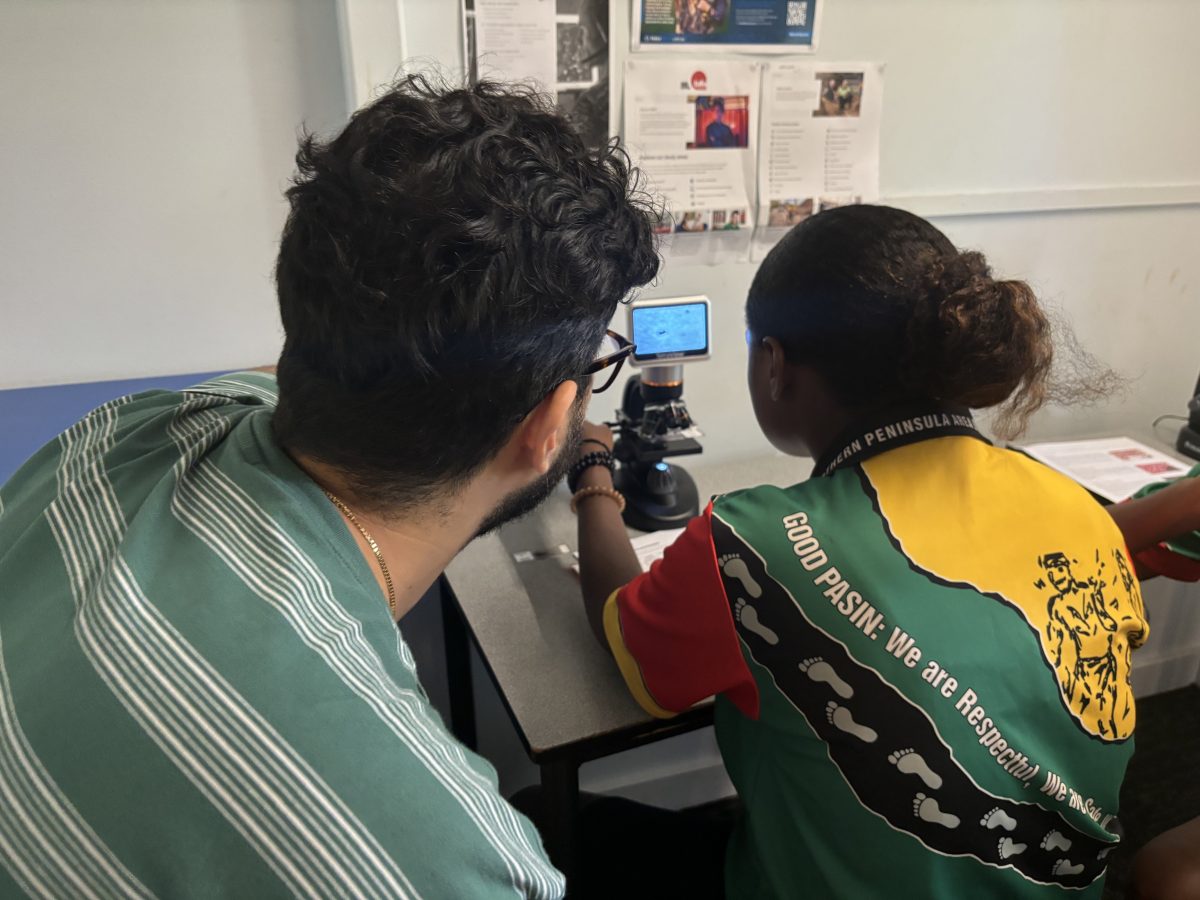
PhD candidate Andrew Laskary encourages science as a career option to young people in Bamaga. Photo: QIMR Berghofer.
Three bright scientists boarded a plane, bus and boat to reach students in Cape York and the Torres Strait to inspire the next generation of science superstars.
The QIMR Berghofer Regional Education Program is aimed at delivering science to children across Queensland, while demonstrating and encouraging pathways to careers in medical research.
Dr Nigel Waterhouse, Dr Ellie Paige and Andrew Laskary joined the education team on the northern outreach, the first leg of the ongoing program which will take QIMR Berghofer across the state.
Mr Laskary, who is currently undertaking a PhD, said the touring presentation showed students what the career of a scientist might look like.
“It was three different scientists from different stages in their careers,” he said.
“So, me being very early on, and then the other two scientists more established in their careers, it gave the students perspective of what it looks like when you progress in your career.”
He said the program was an opportunity for students to be exposed to pathways they may have not otherwise considered.
“It’s really just about trying to let them know about science as a viable career option, especially youth in remote regions that don’t typically have exposure to scientific programs,” Mr Laskary said.
“I was born in Egypt, so for me personally, I had no idea what science is or what a scientist does until I got exposure to that.
“So, it’s really about cultivating those experiences early on so that they could think about these options down the line when it’s time to choose.”
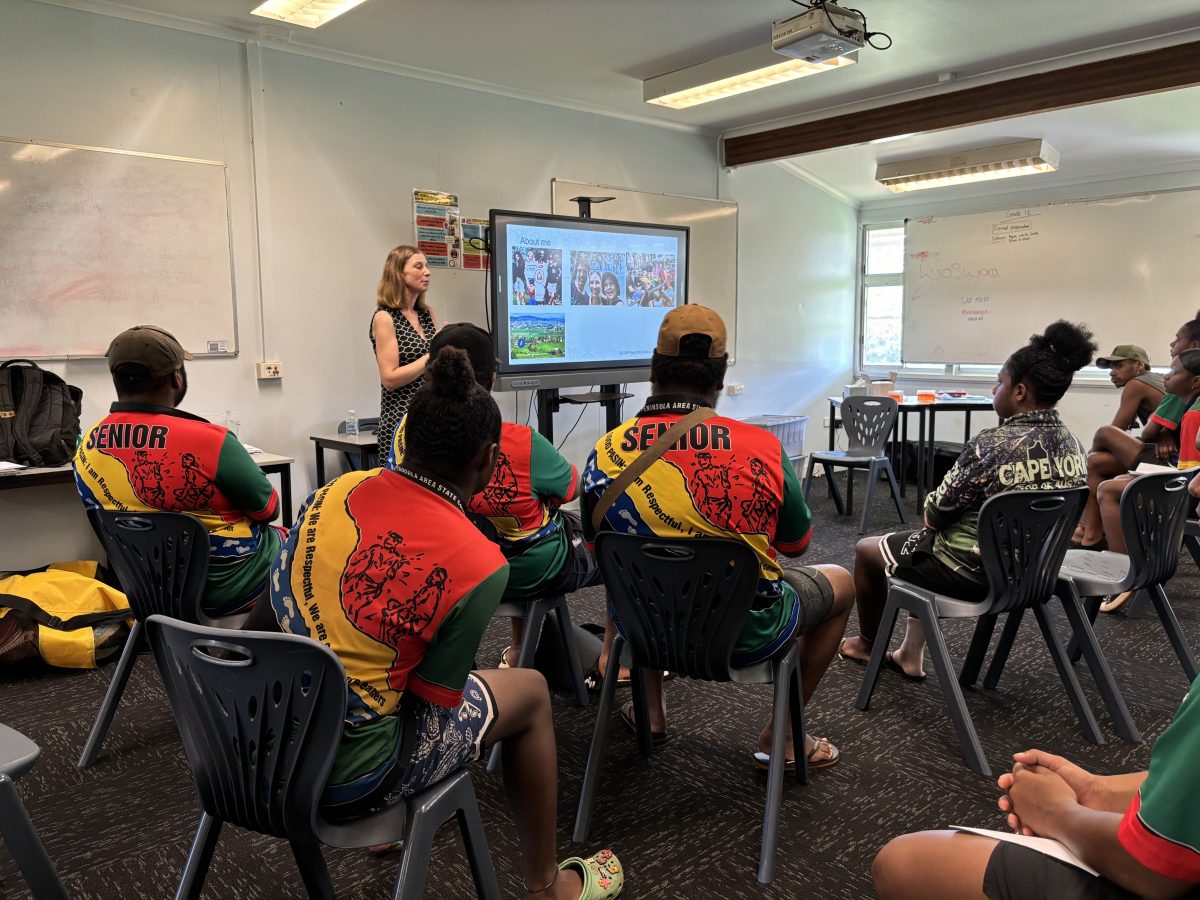
Students at Northern Peninsula Area State College listened intently to the experience and research of three successful scientists. Photo: QIMR Berghofer.
Jude Di Giacomo from the Northern Peninsula Area State College said the visit opened the eyes of many students, particularly those with a natural flair for science.
“It’s not often a team of renowned scientists in their field working at an amazing institute in Brisbane travel all this way,” she said.
“How the research was presented to the students was just outstanding.”
Mr Laskary said the students especially enjoyed the hands-on work.
“We brought a bunch of microscopes with us, and a lot of slides of things like human blood, different organs and even a mosquito,” he said.
“They all looked at those under the microscope and they absolutely loved that, especially the blood slides.
“We also had another station with getting them to know what DNA is, and playing around with how to manipulate DNA in different ways.”
QIMR Berghofer education coordinator Dr Manuel Serrano Santos said the program was designed specifically for children in regional Queensland in consultation with the Department of Education, with the strategy receiving widespread support.
“We were received with open arms,” he said.
“It was great to show students that science is possible for them, no matter how remote they are.”
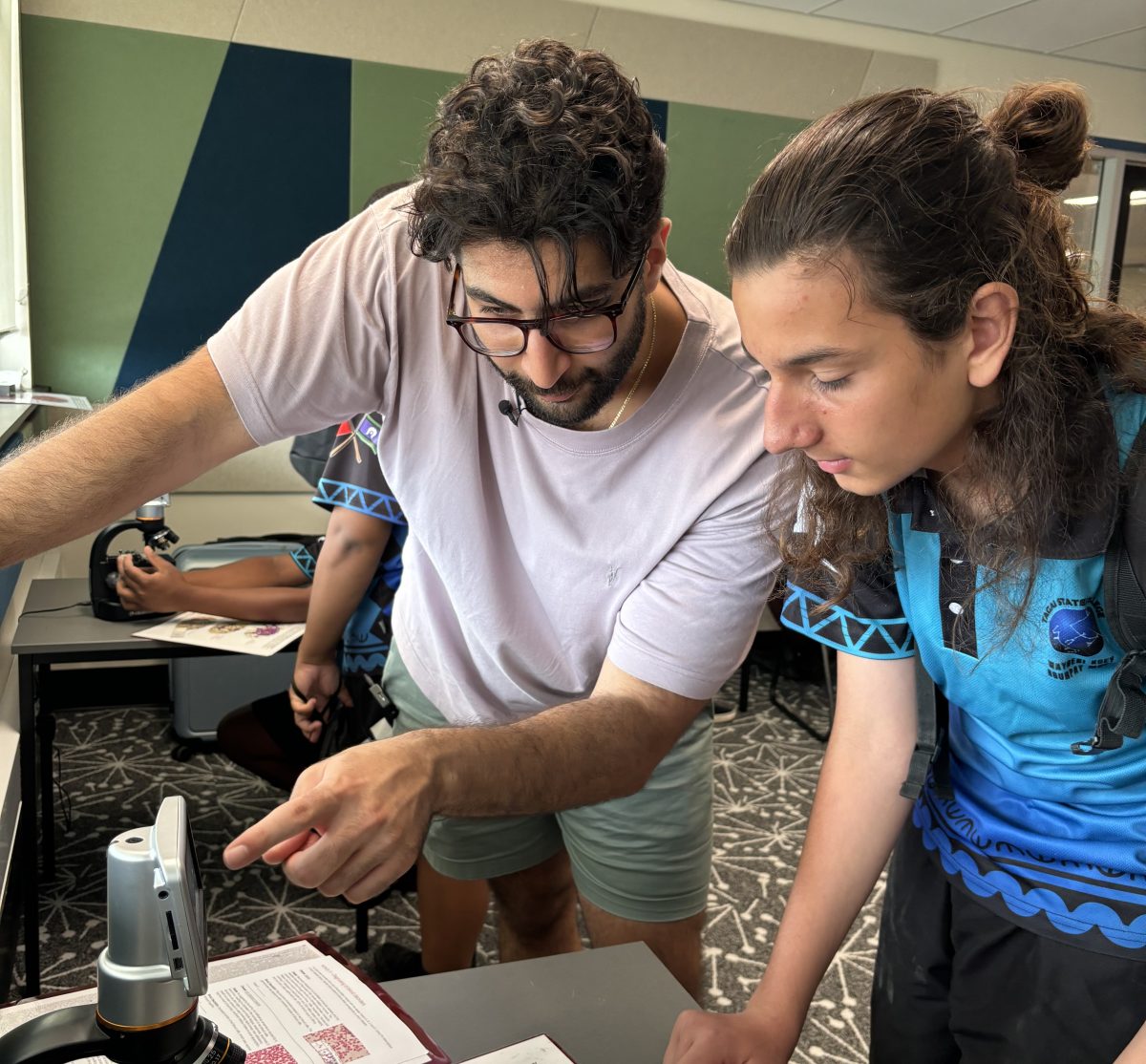
Andrew Laskary and the QIMR Berghofer team also visited Tagai State College in the Torres Strait. Photo: QIMR Berghofer.


